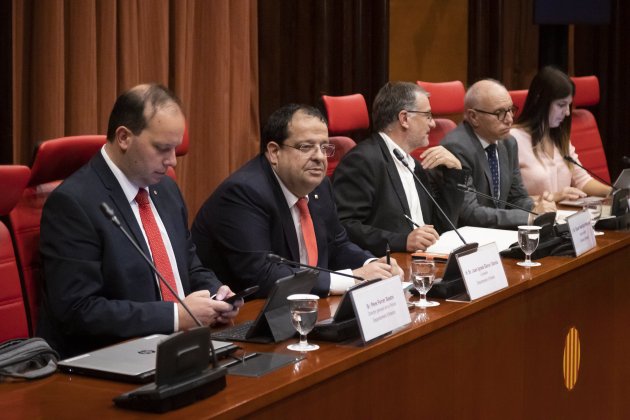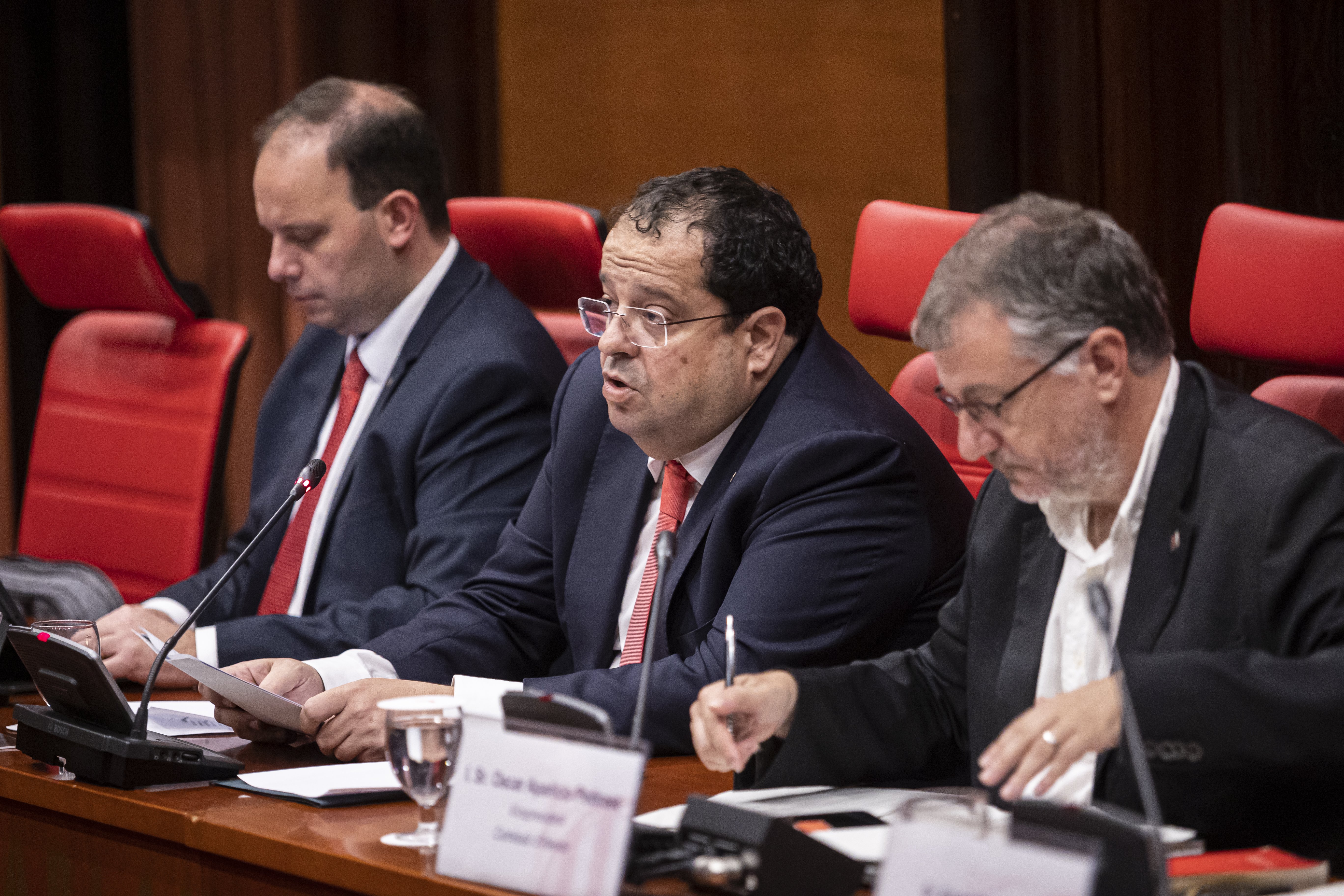The issue has rumbled on for over a week in Catalan politics, striking a discordant note as president Pere Aragonès attempted to give his new ERC government an up-beat launch: on Monday, October 17th, the Catalan interior minister Joan Ignasi Elena dismissed the head of the Mossos d'Esquadra police, commissioner Josep Maria Estela, the second sacking of a Mossos head in less than a year after Elena himself had sacked Josep Lluís Trapero in December 2021. Up till now, the only thing the minister Elena had told Parliament over the affair was that while he would not allow political interference in the operations of the Mossos, he would also not allow police interference in the decisions that must be political. This Tuesday, however, he appeared at his own request at Parliament's interior committee to explain the dismissal of Estela and the appointment of commissioner Eduard Sallent as new head of the body. Elena justified the dismissal of Estela due to the "observed differences" between the head of the body and the direction of the interior ministry, asserting that he wanted to create "a more choral Prefecture" and that the "rate of feminization" that the ministry wanted to promote had clashed with Estela's own preferred rate.
According to the minister, in a society where 51% of the population are women, "it is not admissible" that this has not been transferred to the security forces, defending the quota model that has been applied in the selection processes at basic level and the nomination of four female police commissioners. With the aim of reversing the current situation in which women only form 21% of the Mossos d'Esquadra corps, Elena has assured that they will work along these lines to achieve a police corps that is more similar to society that they serve. However, he insisted that this strategic line was shared with commissioner Estela, although the former head of the body and the minister "disagreed on the pace": referring to the confrontation between the two over the election of new commissioners, Elena detailed the entire process for choosing the six new commissioners, four women and two men.
"A relief was needed to be able to continue moving forward"
The interior minister, at the same time, argued that he maintains a good relationship on a professional and personal level with Estela, and recalled that the dismissal "was not easy", but that he had "the obligation"; "a relief was needed to be able to continue moving forward", he asserted to the MPs at the committee.
Elena also said that the management model had also generated discrepancies with Estela. The interior ministry sought a "choral" leadership, with the head commisioner, as well as commisioner Sallent, superintendant Rosa Bosch and inspector Montserrat Escudé, but that did not end up working. Elena insisted on maintaining this "choral" model and regretted that it "generated resistance" but that he, like his team, had come to "transform security policies", although it would be easier to "take it easy in office". "From our progressive and left-wing vision, we govern to change everything we don't like, everything that can be improved," the minister pointed out. "Pyramidal organizational structures are a thing of the past. We have started a change in organizational culture, more adapted to our times", he said.

Rain of criticism from the opposition
Elena's words were not received well by any of the Catalan opposition parties, although they all tried to differentiate their own particular reasons for disbelieving his explanation. PSC deputy and former interior minister Ramon Espadaler was the first to reproach the current minister. "We are committed to feminization and have tried to facilitate the access of women to the Mossos, but it is not clear that this is the reason why he has taken this decision", he asserted. And the CUP, with whom the Socialists are generally at odds in police matters, also shared the assessment that Elena's argument "doesn't fit", although Xavier Pellicer "did not agree on anything else that the PSC had said". Junts also spoke of the need to work to feminize the police body and the leadership of the Mossos, but said that this issue was an "excuse" for Elena: "Feminization does not happen just because the chief police officer is appointed by the minister in a marketing operation", warned Mercè Esteve. And David Cid, from the Comuns, expressed his group's commitment to feminization, but warned: "What he has no right to do is destabilize the Mossos corps."

